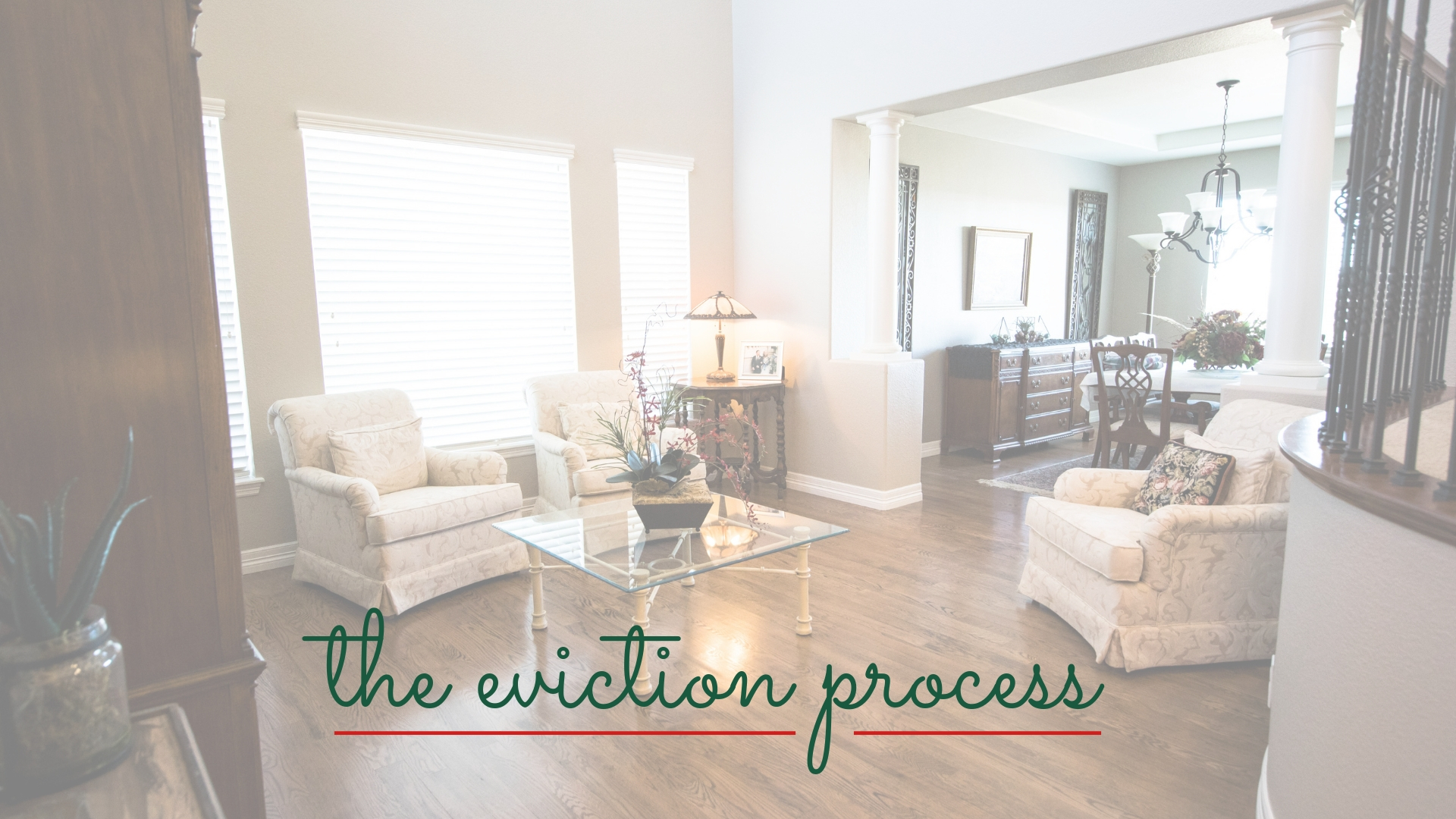Evictions are stressful and frustrating for everyone, and no landlord wants to toss someone out onto the street. But, if rent isn’t being paid, you have no choice. Landlord tenant laws in Georgia are pretty straightforward when it comes to eviction; if your tenants are not paying rent or violating the lease somehow, you have grounds to evict them.
Make sure you understand the eviction process before you take steps to remove a tenant from your Stockbridge rental property. While the process is generally efficient, one mistake could set you back and delay the eviction, making it costlier for you.
Serve Tenants an Eviction Notice
You’re required to notify your tenants of your intention to file for eviction. While the law doesn’t require that you put this in writing, it’s a good idea to serve a written notice when rent is late and your tenants are nonresponsive. Documenting the process is a good way to come out ahead if the eviction travels all the way to court. Include the following information on your notice:
- Eviction notice date.
- Full name and address of the tenant and the property.
- Eviction reason; i.e. nonpayment of rent.
- Amount of rent due plus late fees.
- Amount of time tenant has to pay before you file eviction with court.
- Detail on delivery method; i.e. served in person or posted on door.
There is no specific timeframe that you’re required to give your tenants. Other states have a three-day period for tenants to respond. If you don’t hear from your tenants or receive the rent within three days, you should move ahead to the next steps.
Filing a Dispossessory Action in Court
You’ll need to go to the court and get a Dispossessory Warrant signed by a judge. Your warrant will list your name and your tenants’ names and note the fact that you made a demand for payment or possession, and you were denied. The amount of rent that’s due will also be included. The sheriff will serve this summons on your tenants, and they will have to respond within seven days.
If the tenants provide a response, a court hearing will be scheduled within 10 days. If there’s no response from your tenants, you can request the default and apply to the judge for a Writ of Possession. Then, the tenants will have 24 hours to leave. If a court hearing is scheduled and you win the case, the tenants will have 10 days to vacate.
Avoiding Self-Help Evictions
 While Georgia law is generally favorable to landlords who are trying to remove bad tenants, you are not permitted to engage in any aggressive or threatening actions against your tenants. You cannot change the locks, cut off the utilities, or show up yelling. You could find yourself in legal trouble and subject to a criminal complaint. Evictions can be emotional, but you have to follow the court process and make sure you take each necessary step.
While Georgia law is generally favorable to landlords who are trying to remove bad tenants, you are not permitted to engage in any aggressive or threatening actions against your tenants. You cannot change the locks, cut off the utilities, or show up yelling. You could find yourself in legal trouble and subject to a criminal complaint. Evictions can be emotional, but you have to follow the court process and make sure you take each necessary step.
If you have any questions about the eviction process in Georgia, or you’re having trouble with a tenant who won’t pay rent, contact us at Fickling & Company Property Management. We can help.
